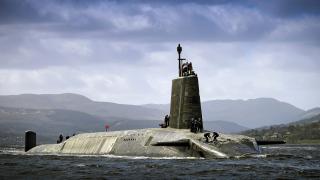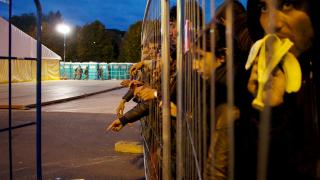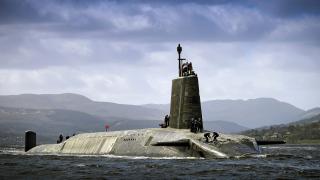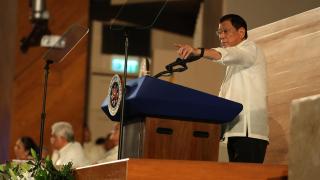
Traditional criticisms of British nuclear weapons policy-making have often highlighted its secrecy and lack of accountability. But a deeper problem is in Parliament’s handling of the associated complexity.
In the run-up to July’s vote on Trident Successor (since named Dreadnought), there was (unusually) a new dimension within the public debate. Media reports in early 2016 on the emergence of new technologies talked of their possibilities in reducing or neutralising the stealth of ballistic missile submarines. If that stealth is deeply compromised, putting nuclear weapons on submarines in international waters could be the most risky and destablising of all options, whatever one thinks about nuclear deterrence. If in a crisis there is a danger of losing the (single) platform upon which the nuclear deterrent depends (and possibly not even knowing until it is too late), this leads to a particularly acute case of crisis instability and insecurity.
The recent (very real and rapid) development of robust, autonomous, intelligent robotics under and above water, a variety of new or improving sensing technologies, and extraordinary on-board processing and communications capabilities, all converge to suggest a trend that could up-end the centuries-long struggle between submarines and anti-submarine capabilities for the foreseeable future. Those familiar with current patrolling practices may believe it a little far-fetched to consider the oceans transparent, but their dependence upon the opacity of the ocean is time-limited. It’s simply a case of when the technology becomes robust enough, not if. And the first patrol of HMS Dreadnought is still at least 15 years away.
In the space of six months the typical response, deployed to reassure those already convinced in Trident, evolved from the assertion that there is no problem (the ocean is too big and water opaque to any detection capabilities) to the claim that counter-technologies would be developed to protect the submarine, and then to the claim that - even if detectable -submarines would still be the most stealthy form of platform. Any impartial observer would surely have concluded that whilst this all involved a great deal of speculation, there is a clear and serious risk to the Trident renewal project that merits serious consideration.
Yet, only a handful of parliamentarians referred to these developments in the debate, though all had access to the information. The vast majority on both sides preferred instead to remain on their familiar safe ground of ‘positional politics’, where evidence is interpreted through the lens of pre-determined policy; defended by appeals to morality, the effectiveness of overwhelming threat, and the dangers of an unpredictable world. Attempts to consider the balanced merits and carefully weigh the evidence appear to be very secondary to a top-level belief that owes a great deal to personal analogy and an inflexible world view.
Just as many supporters of President-elect Donald Trump seem to have drawn strength from criticisms of his misogyny and racism (‘he tells it how it is’), so too many of the arguments on both sides of the nuclear debate seem to find comfort from the arguments of their detractors. Those against nuclear weapons - accused of naive purity - talk of the need for deep and radical shifts in the way governments interact internationally.
Those in favour of nuclear deployments claim that it is their scale and destructive horror that reinforces their point - that to survive and thrive in this world you have to be prepared to commit terrible acts of unconscionable violence, but that for the very same reasons they will not be used. The determining factors appear to revolve around traditional masculine perceptions of the overwhelming ability to deter by punishment those that threaten us, and the nature of status and strong leadership in the world. This pessimistic view is not completely blind to the risks - rather it perceives no viable alternative to strength and aggression. The stasis of these positions facilitates domestic political signaling: after the Brexit vote and a new Theresa May Government, the Conservative Party needed healing unity and saw the opportunity to deepen opposition divides fighting for the soul of the Labour Party.
If we are to have a decent debate that considers the valid dimensions of all sides of the nuclear issue, we need a far greater flexibility in position. This probably requires a reframe away from established divisive points of departure, focusing instead on the need to reduce international risk and establish an effective global process that takes us away from the dependence upon nuclear deterrence.
Photo: Royal Navy Vanguard Class submarine HMS Vigilant returning to HMNB Clyde after her extended deployment. Credit: Defence Images/CC



















